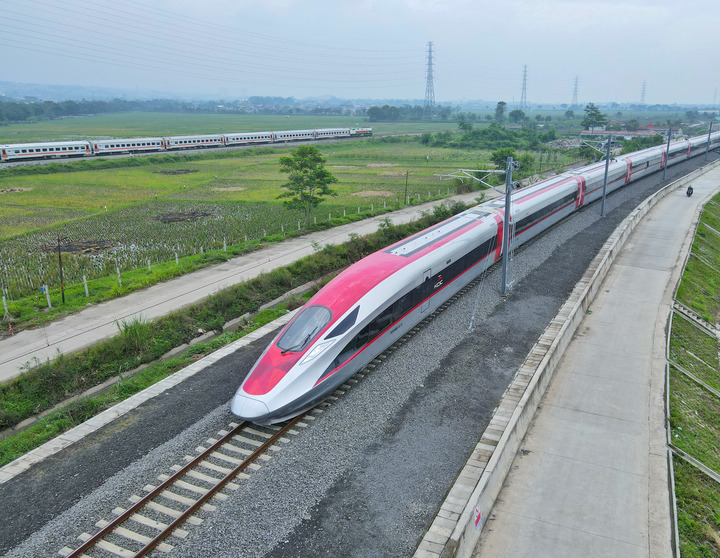
Jakarta-Bandung High-Speed Railway represents China’s first overseas railway construction project that only uses Chinese standards. (PHOTO: XINHUA)
Edited?by?LIN?Yuchen
Jakarta -Bandung High -Speed Railway (HSR) recently completed its first sectional trial on November 16, ensuring that all engineering parameters of that section meet the design requirements.
Beginning in 2018, the construction of the HSR represents China's first overseas railway construction project that only uses Chinese standards. Its railway systems and technologies all originate from China.
"Cooperation, innovation and mutual benefits are the essence of the successful practice and spirit of the construction of the Jakarta-Bandung HSR," said Dwiyana Slamat Riyadi, director of KCIC, a joint venture consortium of Chinese and Indonesian state-owned companies that run the railway.
At present, all tunnels and culverts along the railway have been completed, including over 90 percent of railway subgrade, bridges and stations. Jakarta-Bandung HSR epitomizes the engineering projects of the Belt and Road Initiative between China and Indonesia and will serve as the first HSR in the whole southeast Asia region.
The commute between Jakarta and Bandung would be shortened from three hours to 40 minutes with the HSR.
In the middle of construction, the Chinese engineering team cooperated closely with the government bureaus of Indonesia, to overcome extreme terrain while accommodating local cultures and traditions in design.
"The designing of Jakarta-Bandung HSR takes into full account the characteristics of local Muslim communities in Indonesia," said Wang Wenbo, a staff member at China Railway Design Group, adding that all stations have been equipped with special toilets and prayer rooms for Muslims.
Many of the latest achievements of China's high-speed railway technological innovations have been applied, such as advanced precision measurement and control systems and earthquake early warning monitoring.
Back in 2015, when China won the construction bid over its Japanese rival, Indonesia's State Owned Enterprises Minister Rini Soemarno confirmed that Indonesia chose the Chinese bid because it did not demand any Indonesian government financing or government guarantees.
The trio will conduct a series of experiments in fields such as life science, fluid physics, combustion science and materials science. Notably, this is the first time that fruit flies have been taken on a Chinese space mission as experimental subjects. What made scientists choose fruit flies? What experiment will they undergo?
